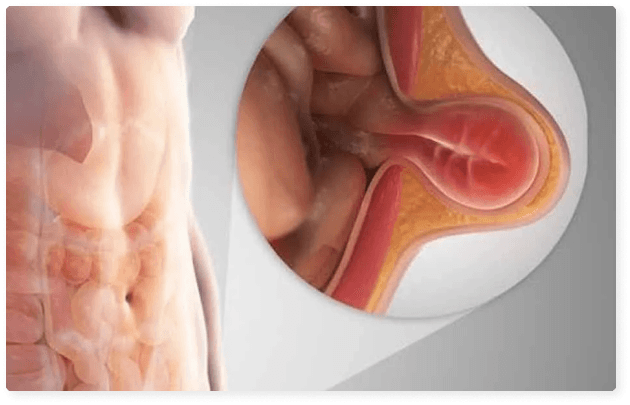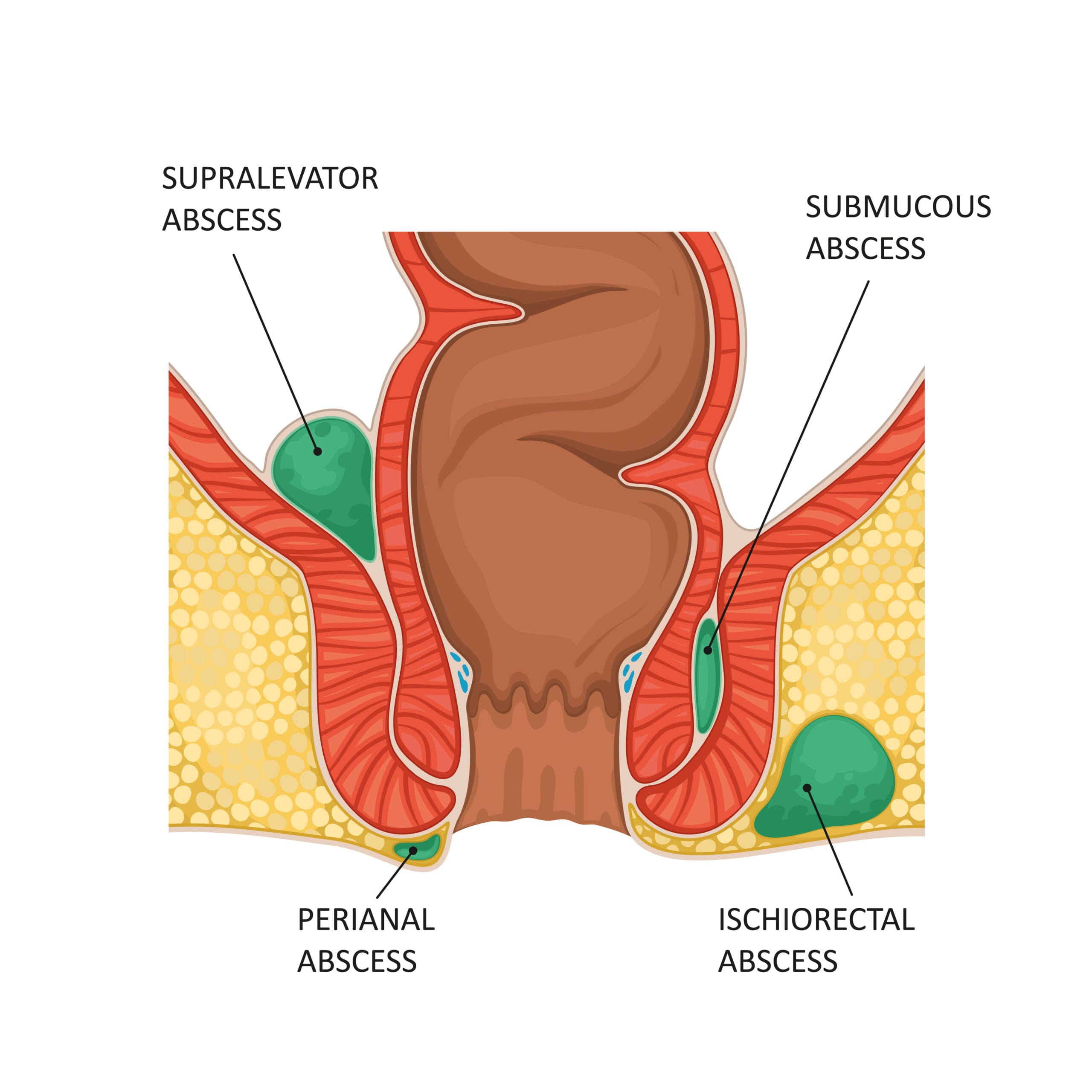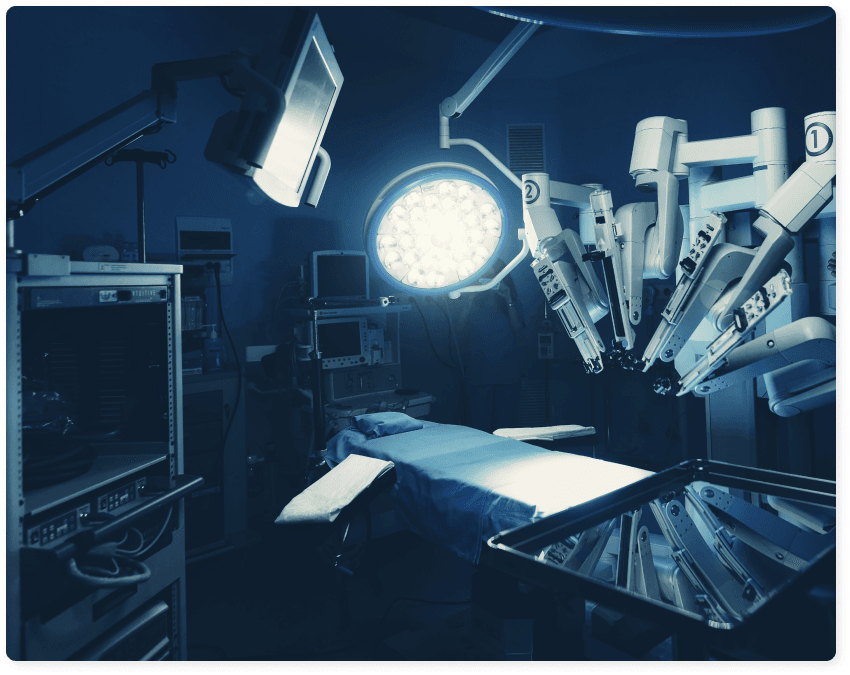Anal abscess
An anal abscess is a harmful condition, which is accompanied by severe pain and requires immediate medical attention.
Treatment for anal abscess is surgical and if not applied in time it can cause severe deterioration of the condition and unnecessary complications, such as the formation of an anal fistula.

What is an Anal Abscess?
An anal abscess occurs when a cavity around the anus is filled with pus, usually due to an obstruction of an anal gland.

It is the acute phase of a rectal infection, the chronic phase of which is the anal fistula.
This happens when the abscess does not heal and finds a way out on the surface of the skin.
Why choose Dr. Konstantinidis?
Dr. K. M. Konstantinidis and his team possess vast experience in the field of laparoscopic and robotic surgery.
Dr. Konstantinidis is the pioneer of Robotic Surgery in Greece and one of the leading figures internationally in the field, having performed the largest series of General Surgery operations in Europe with the innovative Da Vinci® robotic system, including inguinal hernia surgeries.
What are the symptoms of Anal Abscess?
Persistent anal pain is one of the most common and immediate symptoms of anal abscess.
Usually, the pain is accompanied by swelling in the anal area and becomes even more intense during bowel movements.
Other symptoms of anal abscess include fever and redness, the latter mainly in the more superficial abscesses.
Abscesses can form deeper in the rectum, more often in patients with inflammatory bowel disease. This can lead to pain or discomfort in the abdominal area.
What causes an Anal Abscess?
Anal abscesses are caused by bacterial infections in the perianal area. Infection can occur if one or more of the anal glands get blocked.
What are the risk factors for Anal Abscess?
The following conditions increase the risk of developing anal abscess:
- Pregnancy
- Diabetes
- Crohn’s disease, which is an inflammatory condition of the intestine
- Chemotherapy
- Sexually Transmitted Diseases (STDs)
- Constipation
What are the complications of Anal Abscess?
If neglected, anal abscesses can lead to the following complications:
- anal fistula, i.e. the creation of an abnormal channel between the anal canal and the surface of the anal skin
- perineal gangrene /systemic sepsis, a life-threatening infection that spreads throughout the body
- fecal incontinence
How is peripheral abscess diagnosed?
Usually, anal abscesses are detected during a physical examination, where the doctor examines the anal area for signs and symptoms.
If there are no visible signs of the abscess on the surface of the skin around the anus, then endoscopic examination in the anal canal and lower rectum may be required.
Sometimes, the abscess lies deeper. In this case, the use of MRI or ultrasound may be required.

Opening - drainage of an Anal Abscess
How is Anal Abscess treated?
The treatment of anal abscess is purely surgical and entails its timely opening and drainage through the shortest route.
In some cases, a catheter may be used to ensure complete drainage of the abscess.
Drained abscesses are usually left open and do not require sutures.
If the surgical drainage is not carried out properly, there is a high possibility of recurrence of the abscess or the formation of an anal fistula, so it is important for the surgeon to have extensive experience and specialization in dealing with such cases.
What happens after treatment for Anal Abscess?
If the patient suffers from diabetes or has a weakened immune system, he or she may need to stay in the hospital for a few days for the purpose of being monitored and receiving antibiotics intravenously.
After surgery, it is recommended that the patients wash with lukewarm rather than warm water. Lower water temperature helps reduce swelling and helps to better drain the abscess.